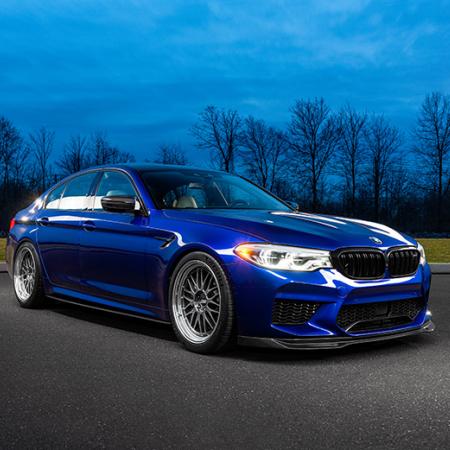BMW regained the monthly sales crown from Audi in May as the small X1 sport-utility vehicle and new 3-Series sedan won customers, Bloomberg News reports. BMW’s global deliveries in May rose 7.8 percent from a year earlier to 139,161 cars and SUVs, the company said. Demand at Audi in May rose 6.4 percent to 137,200 units. Third-ranked Mercedes-Benz boosted sales 7.3 percent to 121,360 cars and SUVs. Five-month sales at BMW climbed 7.2 percent to 651,168 cars and SUVs.
The three German competitors are pushed outside Europe to escape the effects of their home region’s sixth annual auto-market decline. In contrast to capacity cutbacks at European volume carmakers, BMW, Audi and Mercedes are maintaining production in July and August to meet demand from abroad, rather than shutting plants for summer vacations.
“Exports of the German manufacturers to the U.S. and China are generally still going well,” said Juergen Pieper, a Frankfurt-based analyst with Bankhaus Metzler. “The German luxury carmakers are selling well over 50 percent outside Europe, and they are faring better in Europe than their mass-market competitors.”
BMW rose as much as 0.8 percent to 72.80 euros and was trading up 0.7 percent at 1:31 p.m. in Frankfurt on the news. The stock has declined 0.6 percent this year, outpacing VW’s 2.5 percent fall. Daimler shares have gained 19 percent since the beginning of the year.
Audi and Mercedes have each outlined plans to overtake BMW as the world’s biggest maker of luxury cars by the end of this decade at the latest, and the VW unit outsold BMW in January. Five-month sales at BMW climbed 7.2 percent to 651,168 cars and SUVs. BMW sold 11,000 more vehicles than Audi in the period, and 88,000 more than Mercedes.
X1 sales in May jumped 29 percent, while deliveries of the 3-Series, which was introduced in early 2012, increased 28 percent, BMW said. Group sales, including the Mini small-car brand, increased 13 percent in Asia, propelled by gains of 16 percent in Japan and 15 percent in mainland China, it said.
“Our vehicle portfolio continues to be in strong demand and once again our sales volume rose to an all-time high last month,” said Ian Robertson, head of sales and marketing. “We expect further successful months ahead,” helped by a 3-Series Gran Turismo version.
BMW will also introduce the 4-Series coupe, a derivative of the mid-sized 3-Series, and launch a new generation of the Spartanburg-built X5 SUV later this year.
Audi can rely on gains in China, the brand’s biggest national market. Deliveries in China were up 16 percent in May and 14 percent in the first five months of the year. Global deliveries through May increased 6.7 percent to 640,200 vehicles. Mercedes five-month sales advanced 5.9 percent to 562,824 cars and SUVs. The manufacturer is counting on the revamped E-Class, the new CLA compact coupe and the new generation of the high-end S-Class for a further sales improvement in the second half of the year.
The success of luxury carmakers contrasts with mass-market manufacturers hurt by weak European demand that is heading toward a 20-year low as the sovereign debt crisis and government austerity measures depress consumer spending.
Ford is shutting a factory in Belgium and two sites in the U.K. while Peugeot plans to eliminate 17 percent of its French workforce by the end of 2014 and close a 2,500-employee assembly plant near Paris next year to trim excess capacity.
Workers at a plant in Bochum, Germany, owned by GM's Opel unit, are holding a rally to discuss the company’s plans to close the factory by the end of 2014.––Paul Duchene









